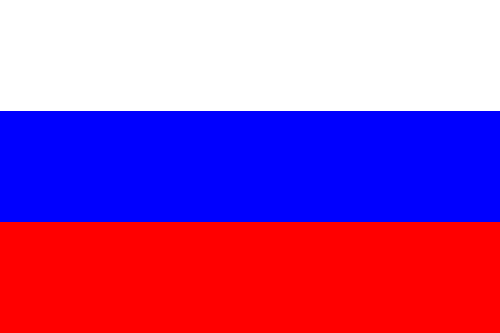Russia, the world’s largest country, spans Eastern Europe and northern Asia, offering a vast array of landscapes from tundra and forests to subtropical beaches. It’s known for its rich history, exemplified in landmarks like Moscow’s Kremlin and Saint Petersburg’s Hermitage Museum. Russia’s cultural heritage in literature, ballet, and classical music is globally recognized. Its diverse regions, from the frozen Siberian plains to the historic streets of its grand cities, present a complex tapestry of history, culture, and natural beauty.
Public Holidays and National Holidays for Russia in the year 2024
- New Year Holidays: Monday, 1 January 2024, to Friday, 5 January 2024
- Orthodox Christmas Day: Sunday, 7 January 2024
- Orthodox Christmas Holiday: Monday, 8 January 2024
- Defender of Fatherland Day: Friday, 23 February 2024
- International Women’s Day: Friday, 8 March 2024
- Spring and Labour Day: Wednesday, 1 May 2024
- Victory Day: Thursday, 9 May 2024
- Day of Russia: Wednesday, 12 June 2024
- National Unity Day: Monday, 4 November 2024

Russia: A Vast Land of Diverse Landscapes, Rich History, and Global Influence
Introduction
Russia, the largest country in the world, stretches across Eastern Europe and Northern Asia. Known for its rich cultural heritage, diverse landscapes, and significant global presence, Russia presents a complex tapestry of history, culture, and politics.
Historical Context
Russia’s history is marked by the rise and fall of empires, revolutions, and transformations. From the era of the Tsars and the Russian Empire to the Soviet Union and its subsequent collapse, Russian history has shaped not only its own destiny but also global events.
Geographical Expanse
Covering over 17 million square kilometers, Russia’s geography is incredibly varied, encompassing vast forests, Arctic tundra, and extensive coastlines. The Ural Mountains divide Europe and Asia, while Lake Baikal and the Volga River are key geographical landmarks.
Cultural Heritage
Russian culture, influenced by its Slavic roots, is celebrated in literature, music, ballet, and art. Iconic figures like Leo Tolstoy, Pyotr Tchaikovsky, and Wassily Kandinsky have left an indelible mark on global culture. Russian Orthodox Christianity plays a significant role in cultural and historical identity.
Economic Landscape
Russia’s economy, one of the largest globally, is driven by its vast natural resources, particularly oil and gas. Other sectors like agriculture, manufacturing, and technology also contribute significantly. However, the economy faces challenges like diversification and international sanctions.
Political Framework
Russia is a federal semi-presidential republic. Vladimir Putin, serving as either president or prime minister since 1999, dominates its political landscape. The country’s governance and foreign policy are subjects of significant international attention and debate.
Societal Dynamics
Russian society is diverse, with over 190 ethnic groups. The country has undergone substantial social changes since the fall of the Soviet Union, grappling with issues like urbanization, demographic shifts, and social inequality.
List of Bordering Countries
Russia shares borders with 14 countries, highlighting its vast geographic span:
- Norway
- Finland
- Estonia
- Latvia
- Lithuania (via Kaliningrad Oblast)
- Poland (via Kaliningrad Oblast)
- Belarus
- Ukraine
- Georgia
- Azerbaijan
- Kazakhstan
- China
- Mongolia
- North Korea
Environmental Challenges and Initiatives
Russia’s vast natural landscapes face environmental challenges like pollution, deforestation, and climate change impacts in the Arctic. The country is involved in various international environmental agreements and initiatives.
Arts and Literature
Russian literature and arts are renowned worldwide. The tradition of Russian ballet, classical music, and literary works like those of Fyodor Dostoevsky and Anton Chekhov continue to influence global arts and culture.
Global Role and Diplomacy
As a permanent member of the United Nations Security Council and a major nuclear power, Russia plays a crucial role in global affairs. Its foreign policies and military actions are key factors in international relations.
Tourism and Natural Attractions
Despite its challenging climate, Russia attracts tourists to cities like Moscow and Saint Petersburg, known for their historical architecture and cultural sites. The Trans-Siberian Railway is a unique way to experience the country’s vastness.
Conclusion
Russia, with its blend of rich history, cultural diversity, and significant global impact, continues to be a country of intrigue and importance. Navigating its complex political landscape and diverse society, Russia remains a key player on the world stage.
